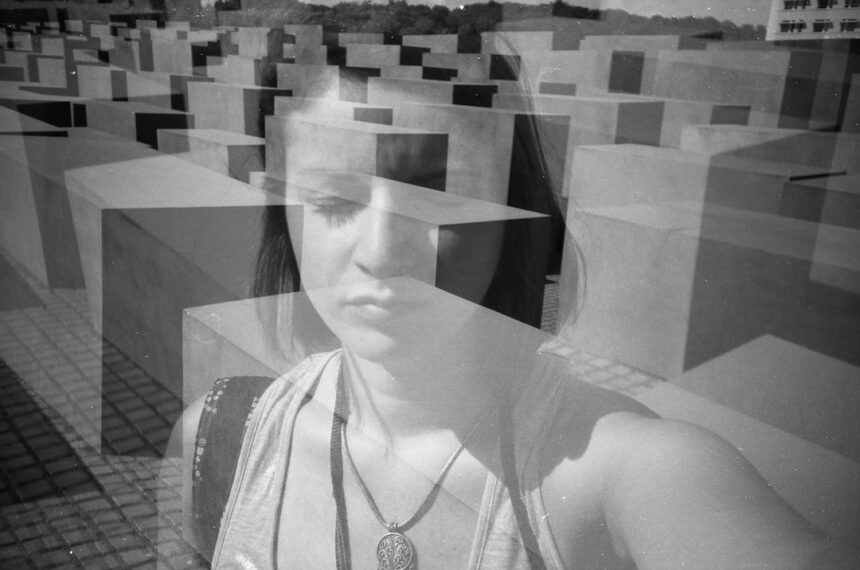Depersonalization and derealization are psychological phenomena that can leave you feeling detached from your own thoughts, feelings, or sense of self. When you experience depersonalization, it may feel as though you are observing yourself from outside your body, as if you are a spectator in your own life. This sensation can be disorienting and unsettling, often leading to confusion about your identity and reality.
On the other hand, derealization involves a sense of detachment from your surroundings. You might perceive the world around you as dreamlike or distorted, making it difficult to connect with people or places that once felt familiar. These experiences can occur in isolation or together, often triggered by stress, anxiety, or trauma.
While they can be temporary and situational, for some individuals, these feelings can become chronic and significantly impact daily functioning. Understanding these phenomena is crucial for recognizing their effects on mental health and seeking appropriate support when needed.
Key Takeaways
- Depersonalization is a mental health condition where a person feels detached from their thoughts, feelings, and body, while derealization is a feeling of detachment from the external world.
- Symptoms of depersonalization and derealization include feeling like an outside observer of one’s thoughts or body, feeling like the world is unreal or distorted, and experiencing emotional numbness.
- Causes of depersonalization and derealization can include trauma, stress, anxiety, depression, and substance use, as well as neurological factors and personality traits.
- Diagnosis of depersonalization and derealization involves a thorough evaluation of symptoms, medical history, and ruling out other potential causes through physical and psychological assessments.
- Treatment options for depersonalization and derealization may include therapy, medication, stress management techniques, and lifestyle changes to address underlying mental health conditions and triggers.
Symptoms of Depersonalization and Derealization
The symptoms of depersonalization and derealization can vary widely from person to person. You might find yourself feeling emotionally numb or disconnected from your body, as if you are watching your life unfold from a distance. This can lead to a profound sense of isolation, as you struggle to engage with your emotions or the people around you.
You may also experience a distorted sense of time, where moments feel elongated or compressed, further contributing to the feeling of being out of sync with reality. In addition to these emotional symptoms, physical sensations may accompany depersonalization and derealization. You might notice changes in your perception of your body, such as feeling as though your limbs are not your own or that you are floating above yourself.
These sensations can be alarming and may lead to increased anxiety or panic. Recognizing these symptoms is essential for understanding your experiences and seeking help when necessary.
Causes of Depersonalization and Derealization

The causes of depersonalization and derealization are complex and multifaceted. Often, these experiences are linked to significant stressors or traumatic events in your life. For instance, if you have faced a major life change, such as the loss of a loved one or a serious illness, you may find yourself grappling with feelings of detachment as a coping mechanism.
This dissociative response can serve as a protective barrier against overwhelming emotions, allowing you to distance yourself from pain. Additionally, certain mental health conditions can contribute to the development of depersonalization and derealization. Anxiety disorders, depression, and post-traumatic stress disorder (PTSD) are commonly associated with these experiences.
Substance use can also play a role; for example, the use of hallucinogenic drugs may trigger episodes of depersonalization or derealization. Understanding the underlying causes is vital for addressing these symptoms effectively and finding appropriate treatment options.
Diagnosis of Depersonalization and Derealization
| Diagnosis of Depersonalization and Derealization | |
|---|---|
| Prevalence | 1-2% of the population |
| Age of Onset | Usually occurs in late adolescence or early adulthood |
| Diagnostic Criteria | Presence of persistent or recurrent experiences of depersonalization, derealization, or both |
| Duration | Episodes may last for hours, days, weeks, or even years |
| Associated Conditions | Often co-occurs with anxiety, depression, and trauma-related disorders |
Diagnosing depersonalization and derealization typically involves a comprehensive evaluation by a mental health professional. During this process, you may be asked about your symptoms, their duration, and any potential triggers that may have contributed to your experiences. It is essential to provide detailed information about how these feelings affect your daily life and overall well-being.
Mental health professionals often use specific criteria outlined in diagnostic manuals, such as the DSM-5 (Diagnostic and Statistical Manual of Mental Disorders), to determine whether you meet the criteria for depersonalization-derealization disorder. This diagnosis requires that the symptoms cause significant distress or impairment in social, occupational, or other important areas of functioning. By obtaining an accurate diagnosis, you can work with your healthcare provider to develop an effective treatment plan tailored to your needs.
Treatment Options for Depersonalization and Derealization
When it comes to treating depersonalization and derealization, various options are available depending on the severity of your symptoms and their underlying causes. Psychotherapy is often the first line of treatment. Cognitive-behavioral therapy (CBT) can be particularly effective in helping you identify negative thought patterns and develop coping strategies to manage distressing feelings.
Through therapy, you can explore the root causes of your experiences and work towards reintegrating your sense of self. In some cases, medication may be prescribed to help alleviate symptoms associated with anxiety or depression that may be contributing to depersonalization and derealization.
A combination of therapy and medication may offer the most comprehensive approach to managing these challenging experiences.
Coping Strategies for Depersonalization and Derealization

In addition to professional treatment, there are several coping strategies you can employ to help manage episodes of depersonalization and derealization. Grounding techniques can be particularly useful in bringing you back to the present moment when you feel disconnected from reality. Engaging in mindfulness practices, such as deep breathing exercises or meditation, can help anchor you in your body and surroundings.
Another effective strategy is to maintain a journal where you can express your thoughts and feelings related to your experiences. Writing about your emotions can provide clarity and help you process what you’re going through. Additionally, staying connected with supportive friends or family members can create a sense of belonging and reduce feelings of isolation during difficult times.
By incorporating these coping strategies into your daily routine, you can empower yourself to navigate the challenges associated with depersonalization and derealization.
Impact of Depersonalization and Derealization on Daily Life
The impact of depersonalization and derealization on daily life can be profound. You may find it challenging to engage in social situations or maintain relationships due to feelings of disconnection from yourself and others. This detachment can lead to misunderstandings with friends or family members who may not fully grasp what you’re experiencing.
As a result, you might withdraw from social activities, leading to increased feelings of loneliness. Moreover, these experiences can affect your ability to perform at work or school. Concentration may become difficult when you’re grappling with feelings of unreality, making it hard to focus on tasks or engage in meaningful interactions with colleagues or classmates.
The cumulative effect of these challenges can contribute to a cycle of anxiety and depression, further exacerbating feelings of depersonalization and derealization.
Depersonalization and Derealization in Mental Health Disorders
Depersonalization and derealization are often intertwined with various mental health disorders. For instance, individuals with anxiety disorders frequently report experiencing these sensations during periods of heightened stress or panic attacks. The dissociative nature of these experiences can serve as a coping mechanism for managing overwhelming emotions associated with anxiety.
Additionally, those diagnosed with post-traumatic stress disorder (PTSD) may encounter episodes of depersonalization or derealization as a response to traumatic memories or flashbacks. Understanding the relationship between these phenomena and mental health disorders is crucial for developing effective treatment plans that address both the symptoms of depersonalization-derealization disorder and any co-occurring conditions.
Depersonalization and Derealization in Trauma and Stress
Trauma and stress play significant roles in the onset of depersonalization and derealization experiences. When faced with overwhelming situations—such as abuse, accidents, or natural disasters—your mind may resort to dissociation as a protective mechanism. This response allows you to distance yourself from the emotional pain associated with the trauma, but it can also lead to persistent feelings of detachment long after the event has passed.
Chronic stressors in daily life—such as work-related pressures or relationship difficulties—can also trigger episodes of depersonalization and derealization. Recognizing the connection between trauma, stress, and these dissociative experiences is essential for developing effective coping strategies and seeking appropriate support when needed.
Depersonalization and Derealization in Substance Use
Substance use can significantly influence the occurrence of depersonalization and derealization episodes. Certain drugs—particularly hallucinogens like LSD or psilocybin—can induce feelings of detachment from reality during use. Additionally, withdrawal from substances such as alcohol or benzodiazepines may also trigger episodes as your body adjusts to their absence.
If you find that substance use is contributing to your experiences of depersonalization or derealization, it is crucial to seek help from a healthcare professional who specializes in addiction treatment. Addressing substance use issues can be an essential step toward alleviating dissociative symptoms and improving overall mental health.
Seeking Help for Depersonalization and Derealization
If you are experiencing persistent feelings of depersonalization or derealization that interfere with your daily life, seeking help is vital.
Remember that reaching out for help is a sign of strength; it demonstrates your commitment to understanding yourself better and improving your quality of life.
In addition to professional support, consider connecting with support groups where you can share your experiences with others who understand what you’re going through. These communities can offer valuable insights and encouragement as you navigate the challenges associated with depersonalization and derealization. By taking proactive steps toward seeking help, you empower yourself on the journey toward healing and self-discovery.
Depersonalization-derealization disorder is a dissociative condition characterized by persistent or recurrent feelings of detachment from one’s body or surroundings, as if observing oneself from outside or experiencing the world as unreal. This can be a distressing experience, often leading individuals to feel disconnected from their thoughts, identity, and environment. For a deeper understanding of this condition, you can explore a related article on the topic by visiting Unplugged Psych, which provides insights into various psychological phenomena and disorders.
Learn More About Depersonalization & Derealization
FAQs
What is depersonalization-derealization disorder?
Depersonalization-derealization disorder is a mental health condition characterized by feeling detached from oneself (depersonalization) and feeling detached from the surrounding environment (derealization).
What are the symptoms of depersonalization-derealization disorder?
Symptoms of depersonalization-derealization disorder may include feeling like an outside observer of one’s thoughts, feelings, and body (depersonalization), and feeling like the surrounding environment is unreal or distorted (derealization).
What causes depersonalization-derealization disorder?
The exact cause of depersonalization-derealization disorder is not fully understood, but it is believed to be related to a combination of biological, psychological, and environmental factors. Trauma, stress, and certain personality traits may contribute to the development of the disorder.
How is depersonalization-derealization disorder diagnosed?
Depersonalization-derealization disorder is diagnosed based on a thorough psychological evaluation, including a discussion of symptoms, medical history, and ruling out other potential causes of the symptoms.
What are the treatment options for depersonalization-derealization disorder?
Treatment for depersonalization-derealization disorder may include psychotherapy, medication, and stress management techniques. Cognitive-behavioral therapy (CBT) and mindfulness-based approaches have shown to be effective in managing symptoms.
Can depersonalization-derealization disorder be cured?
There is no specific cure for depersonalization-derealization disorder, but with appropriate treatment and support, many individuals are able to manage their symptoms and improve their quality of life. It is important to seek professional help if you are experiencing symptoms of depersonalization-derealization disorder.




